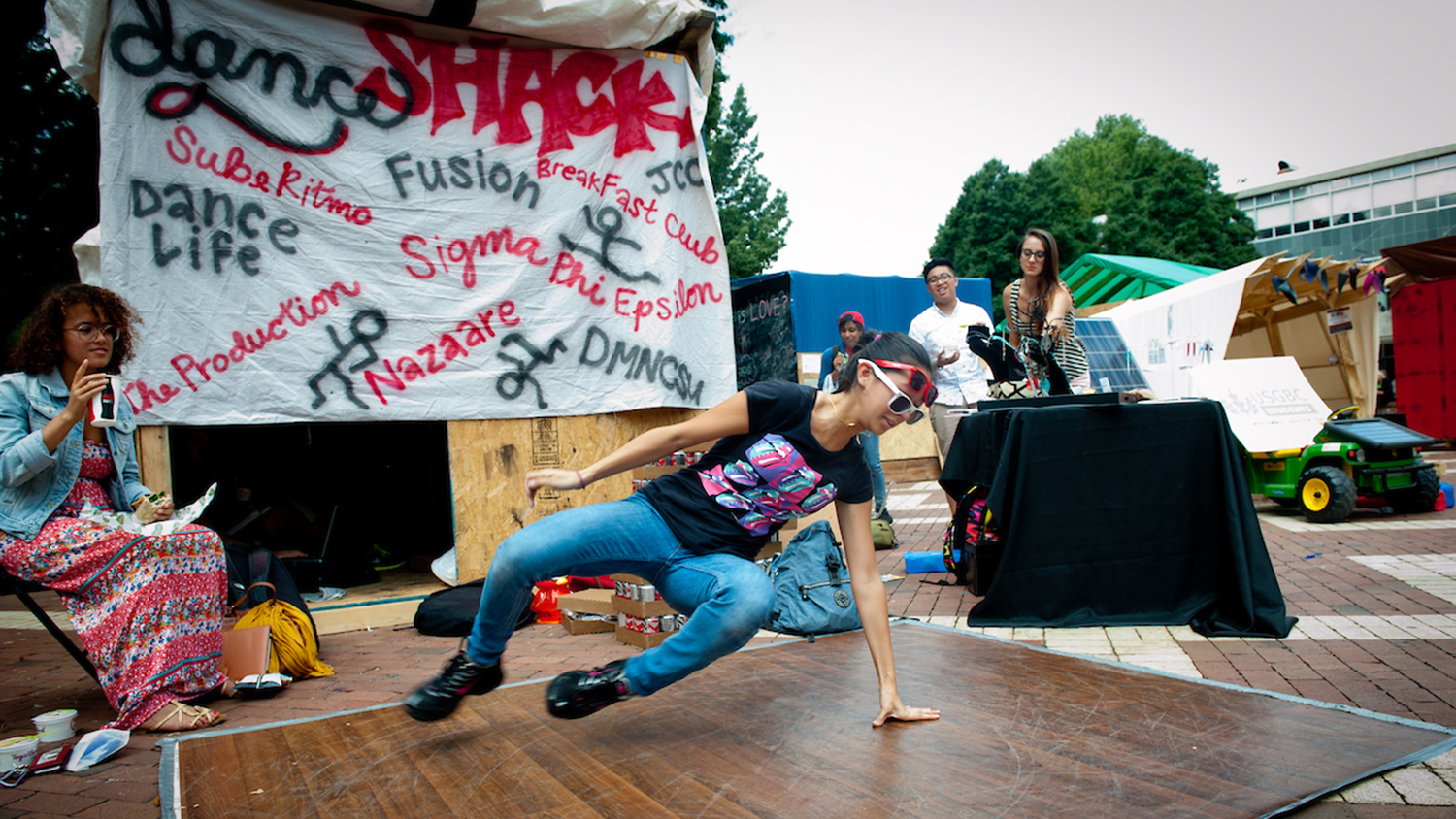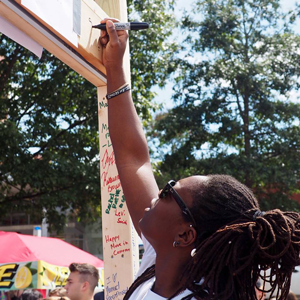Raising Consciousness About Food and Housing Insecurity

The following is the third in a series about food and housing insecurity by Leah Block, a senior majoring in interpersonal, organizational and rhetorical communication with a minor in sociology. The first article covered food insecurity and resources and the second article discussed the intertwined problems of food and housing insecurity.
The first step toward ending any social issue is to raise the collective consciousness. In a step toward ending hunger and homelessness, students read $2.00 a Day: Living on Almost Nothing in America for NC State’s 2018 Common Reading Program. The book looks at themes of food and housing insecurity, including the systematic barriers that inhibit someone’s access to food and housing in the first place.
Student Opportunities
 At the end of Convocation, students were called to action on the issue by the authors of $2.00 a Day, Kathryn J. Edin (who spoke at the event) and H. Luke Haefner. But even those who did not attend Convocation can participate in the Common Reading Program and become agents of social change.
At the end of Convocation, students were called to action on the issue by the authors of $2.00 a Day, Kathryn J. Edin (who spoke at the event) and H. Luke Haefner. But even those who did not attend Convocation can participate in the Common Reading Program and become agents of social change.
The Office for Institutional Equity and Diversity and Student Involvement have organized a number of food and housing awareness programs that encourage students to take an active role in ending homelessness and food insecurity:
- NC State’s annual Shack-A-Thon fundraiser celebrated its 50th year on September 24-28, 2018. Shack-A-Thon benefits the local homeless community.
- The Alternative Service Break trip to Washington, D.C. over fall break served the homeless community in the D.C. area.
- On November 8, 2018, NCSU Libraries unveiled a data visualization of professor Mary Haskett’s study on food and housing insecurity at NC State to provide a tangible representation of the issue.
- Student Involvement will observe Hunger and Homelessness Awareness Week from November 10-18, 2018, featuring workshops and events.
But we cannot stop at coming together for events. We must be vocal, and we must persist.
Student Voices
Students have great power to address college homelessness. There is nothing more powerful on a college campus than the student voice.
When students get together and make noise, the university has little choice but to respond. When students organize around issues that matter, such as food and housing insecurity, odds are that the university will be forced to reckon with its lack of protocol. Students reading this can feel empowered to rally their peers surrounding this issue: start a student group or organization, spearhead a new homelessness awareness event, organize a rally on the brickyard, call up some guest speakers.
Students, raise your voices.
Faculty and Staff, You Too
The Office for Institutional Equity and Diversity will offer a new workshop, titled “Food and Housing Insecurity and Injustice” on Tuesday, December 4, 2018 from 10:00 a.m. – 12:00 p.m. in Administrative Services, Building II.
The workshop will look at food insecurity and homelessness: causes, current status, college student homelessness around the country and at NC State, including federal and campus policies and practices, along with the impact of societal attitudes and beliefs. Learn how to help ensure that all NC State students have access to safe and stable housing.
Leah Block is a senior majoring in interpersonal, organizational and rhetorical communication, with a minor in sociology, and a communications intern in the Office for Institutional Equity and Diversity.
- Categories:


